
[ad_1]
 At a glance
At a glance
Expert’s Rating
Pros
- Excellent performance
- Decently priced for a top-tier drive
- Good TBW ratings
Cons
- Weaker than some with single thread/single queue tasks
Our Verdict
The Aura Pro IV is a strong competitor in the top-tier PCIe 4 NVMe SSD category. Cheaper than some, pricier than others, but a very good drive.
Price When Reviewed
$299 2TB
Best Prices Today: OWC Aura IV 2TB NVMe SSD

$269.00
OWC’s Aura Pro IV NVMe SSD is a very fast NVMe SSD. However, at $299, the 2TB version we tested, while not the priciest top-tier drive (Seagate’s FireCuda 530 was over $350 at the time of this writing), isn’t the cheapest either. Samsung’s 980 Pro is a good $70 cheaper at the moment, and WD’s fantastic Black SN850X is also a couple of 10-spots less.
Cheapest or not, the Aura Pro IV turned in an impressive performance in our suite of storage tests.
This review is part of our ongoing roundup of the best SSDs. Go there for information on competing products and how we tested them.
OWC Aura Pro IV: Design and features
Sporting the common 2280 (22x80mm) form factor, the Aura Pro IV is a PCIe Gen 4, four-lane (x4) SSD leveraging an Innogrit Rainier IG5236 controller, 1GB of SK Hynix DRAM per 1TB of capacity, and 176-layer Micron TLC (Triple-Level Cell/3-bit) NAND. In addition to the 2TB/$299 model, the drive can be found at 500GB/$79 and 1TB/$169 capacities as well.
The Aura Pro IV ships without a heat sink, but there are very few applications where you need one. Plus, most gaming and prosumer motherboards offer their own, so even if you’re a user who’ll be stressing their storage, you’re likely already set in that regard.
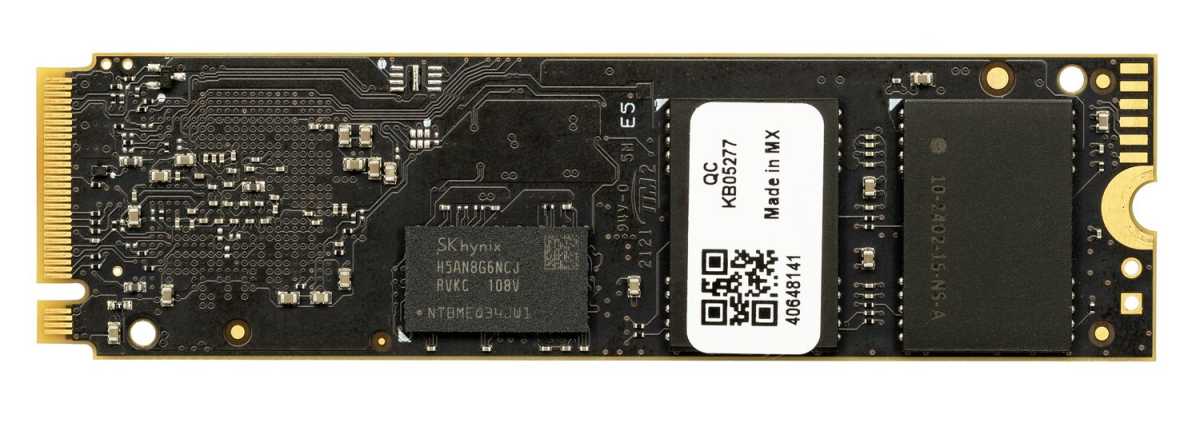
OWC warranties the Auro Pro IV for five years, or 250TBW (terabytes that may be written) per 500GB of capacity. That’s a bit higher than the norm, and far more than WD offers with the speedy Black SN850X, albeit a bit less than Seagate grants for its FireCuda 530.
Beware the SKU on used drives
There is one thing you need to look out for if you’re not buying the Aura Pro IV from OWC, or new (model OWCS3DIG3P4T20). There’s a very similar, but far slower SKU (OWCS3DIGP4XT20—note the X and lack of a second 3) that might pop up used, or some such. I tested one of these in the OWC’s Ministack STX external drive enclosure—and while it read as fast as the Aura Pro IV, write speeds were about half. Check the model number carefully if you see a fantastically low price on a new or used Auro Pro IV.
OWC Aura Pro IV: Performance
If you total the CrystalDiskMark 8 sequential read and write results directly below, the Aura Pro IV measures a hair faster than the top-ranked FireCuda 530. Sweet.
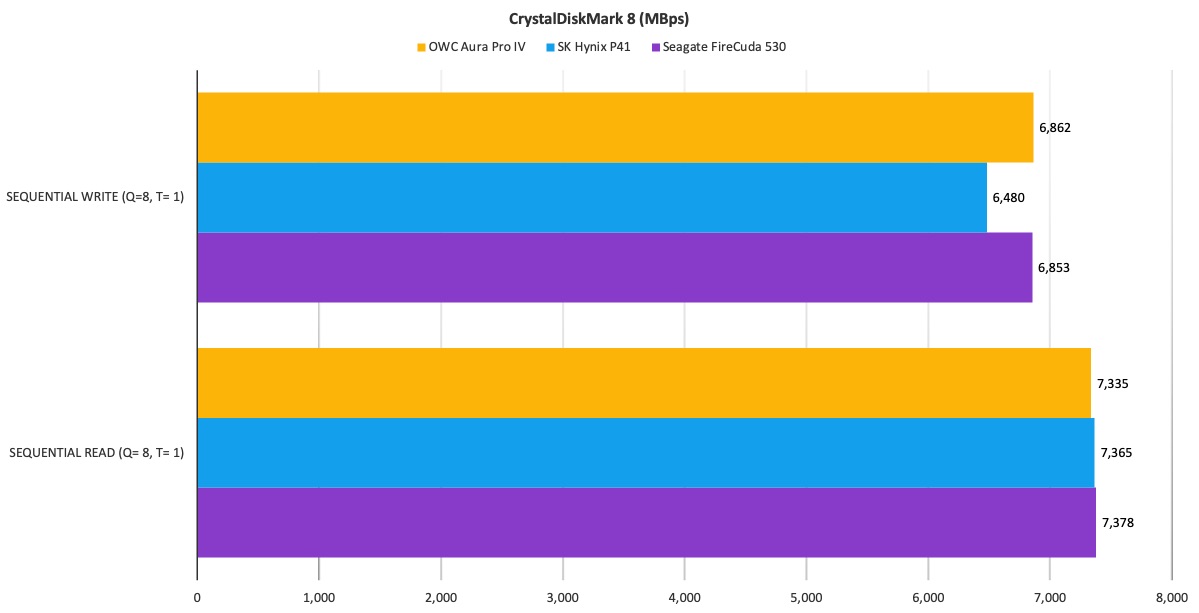
However, through all the phases of CrystalDiskMark 8, it’s merely the sixth fastest drive we’ve tested. A relatively close sixth in a pack with very similar numbers, but still sixth. The Editor’s Choice FireCuda 530 remains numero uno. Note that most of the Aura Pro IV’s deficit was in single-thread/single queue tests.
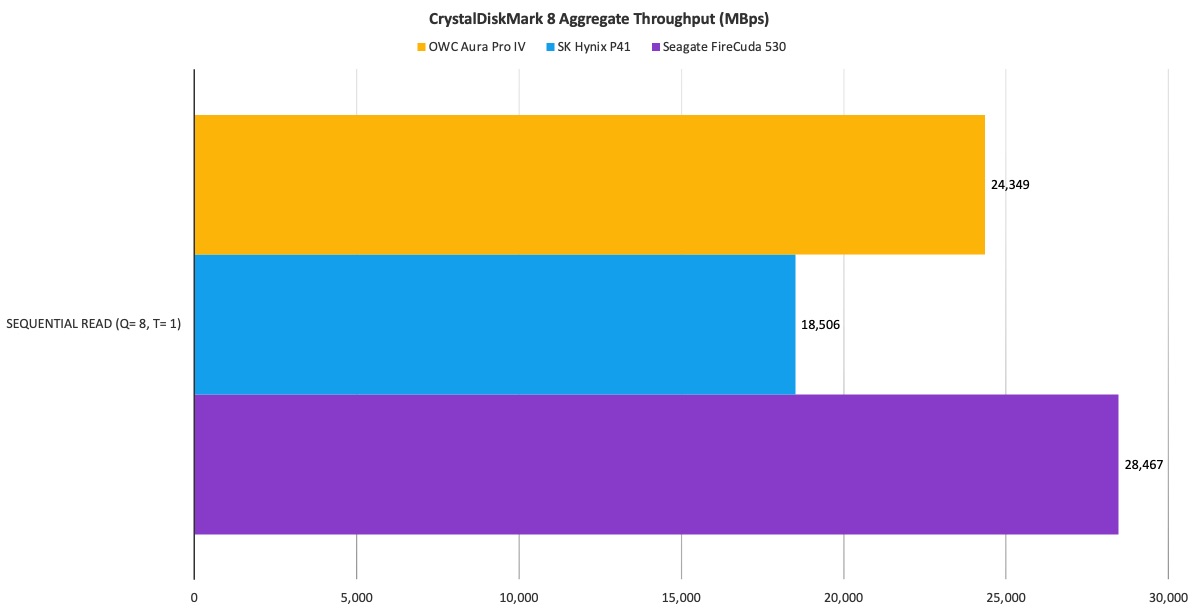
Despite being a bit off the pace with low thread and queue counts, the Aura Pro IV’s real-world performance under Windows is stellar. It lagged behind the FireCuda 530 by a measly 2 seconds in our 48GB transfers—statistically insignificant and within the margin of error.
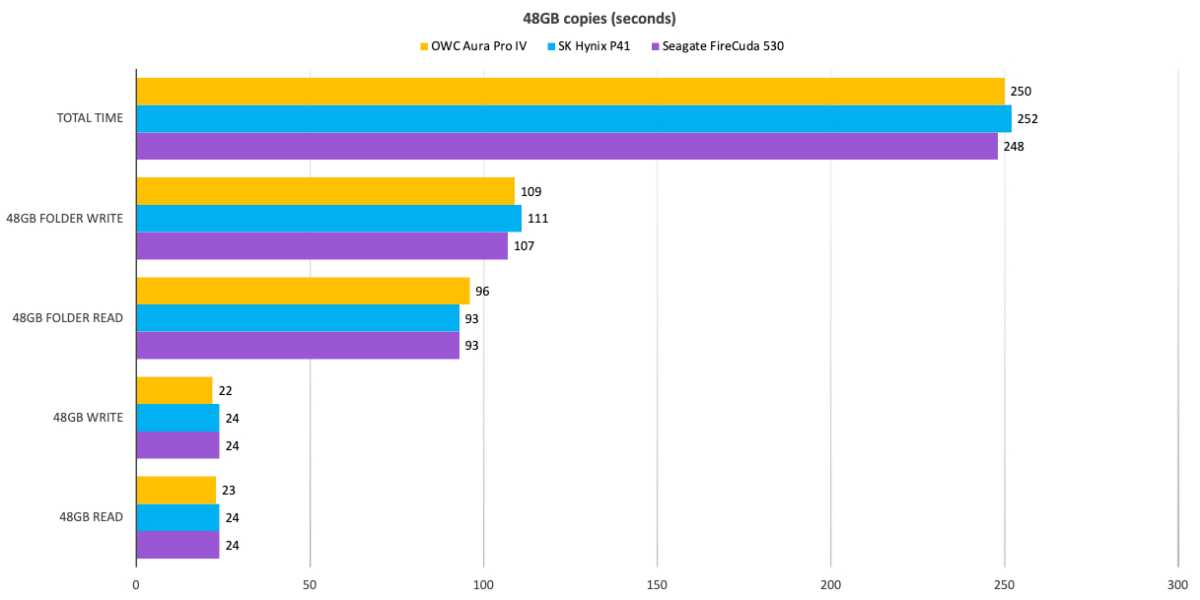
Even better, the Aura Pro IV turned the tables on the FireCuda 530 in our 450GB single-file write. Its time of 210 seconds is just a single second off the non-RAID record of 209 held by the Teamgroup Cardea A440 Pro.
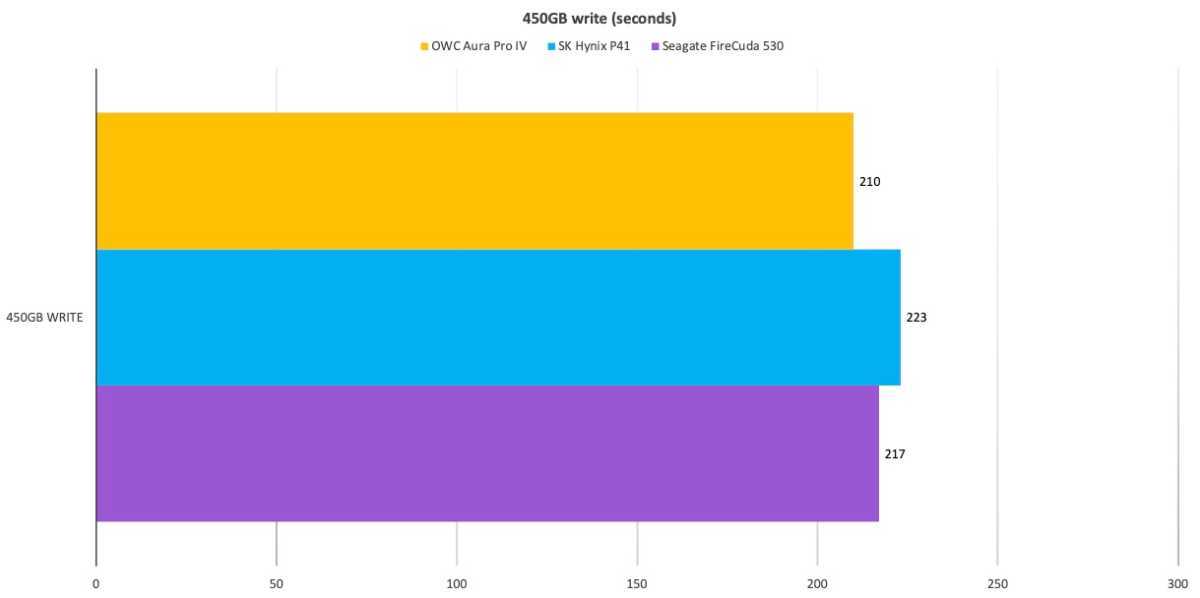
Note that Windows file copying routines themselves level the playing field somewhat in our real-world transfers. Some applications (including the synthetic benchmarks) and systems can attain significantly higher numbers by performing their own I/O. If you regularly use a program that performs its own I/O, a more expensive drive can be worth the premium. Microsoft’s Direct Storage may impact this at some point.
Internal drive tests currently utilize Windows 11 64-bit running on an MSI MEG X570/AMD Ryzen 3700X combo with four 16GB Kingston 2,666MHz DDR4 modules, a Zotac (Nvidia) GT 710 1GB x2 PCIe graphics card, and an Asmedia ASM3242 USB 3.2×2 card. Copy tests utilize an ImDisk RAM disk using 58GB of the 64GB total memory.
Each test is performed on a newly formatted and TRIM’d drive so the results are optimal. Over time, as a drive fills up, performance will decrease due to less NAND for caching, and other factors. The performance numbers shown apply only to the drive of the capacity tested. SSD performance can vary by capacity due to more or fewer chips to shotgun reads/writes across and the amount of NAND available for secondary caching.
Bottom line
The Aura Pro IV is a great PCIe 4 NVMe SSD. The only problem is that it’s competing in a sea of similarly great drives. Regardless, considering the overall performance and high TBW ratings, it should definitely be on your top-tier short list.
[ad_2]
Source link